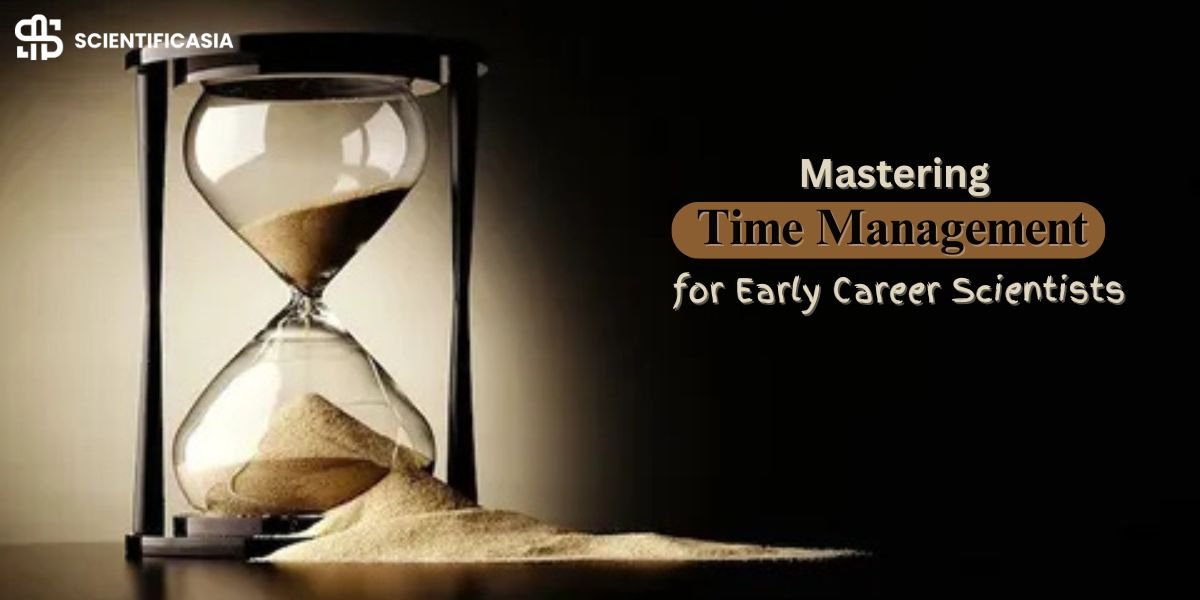Is science your passion? Are you on your way to starting a scientific career but feeling overwhelmed with all there is to do? That’s completely normal. As an early career scientist, you’re likely engaged in research, working to publish your findings, and establishing a network to propel your career forward.
Getting a solid start is essential for your future, so effective time management is crucial. How can you tackle all these responsibilities without burning out? If you’re looking for answers, dive into our article.
How to Manage Time Effectively as an Early Career Scientist?
It wouldn’t be an exaggeration to say that time management can make or break your career, whether you’re a scientist, actor, or content writer. Understanding the crucial role of effective time management for career success, there are many tools and tactics available today that can help you excel. Let’s skim through the most effective ones.
Set Clear Goals
When starting your career as an early scientist, you probably have some expectations about where you want to be in a few years. It’s all about those long-term goals. But to reach them, setting short-term goals is essential. Let’s say you want to become a reputable scientist with publications in respected journals within the next few years. To get there, start by building your portfolio.
Begin by collaborating with local magazines and offering to publish summaries of your research. You could also work with university journals to get your work published.
Alternatively, creating a blog to share your findings is another great way to showcase your research and build credibility. This way, you’ll be establishing a solid portfolio that will support your future publications.
Research itself is no easy feat, so make sure you focus on what truly matters. Prioritize important tasks, and avoid spending too much time on secondary ones.
Create a Structured Schedule
Once you have defined your long- and short-term goals, it’s time to determine when you’ll achieve them. Simply put, you should schedule your activities appropriately.
For example, if you plan to complete research for a publication in a local magazine within a few months, scheduling will help you stay focused on that specific goal. Additionally, robust scheduling can help you establish a healthy work-life balance and avoid burnout.
Employing calendars and planners can be quite useful. Overall, seek to enhance your scheduling and routines to maintain productivity in your scientific career.
Time Blocking Techniques
Another foolproof method to help an early career scientist excel is using time-blocking techniques. Identify specific chunks of time when you’re most productive and reserve these for complex tasks. In particular, define the exact amount of time you’ll spend on each task and stick to it—no more, no less.
You may leverage a useful time tracker to succeed in this technique. Set a timer when you begin work, and if you’re working for a couple of hours, remember to include short break intervals. This approach keeps you focused and efficient, helping you make the most of each productive session.
Learn to Say No
As an early career scientist, you’ll likely have other responsibilities as well. For example, you may be involved in additional projects simultaneously.
While it might seem appealing to take on extra work, it’s essential to assess how these projects align with your long-term goals. If you find that some of them are causing delays in your core activities connected to those goals, it might be better to say no to these opportunities.
Implement Relevant Technologies
Let’s admit that achieving effective time management is challenging without solid technology and tools in place. Today, there are plenty of platforms to help you organize your work efficiently.
For example, you can use Trello or Asana to set deadlines for each task and ensure you finish your research on time. These platforms provide a visual overview of your activities, helping you stay focused on what you need to do and manage your time effectively. Plus, many of these tools offer a free version with plenty of features.
Additionally, it’s worth considering free reminder apps to keep track of smaller tasks or deadlines.
Final Thoughts
Time management is not an inherent ability. It’s a mix of techniques and technologies that help you wisely use your time and succeed in your beginnings.
We’ve discussed key steps that can help you establish robust time management as an early-career scientist. Start by setting clear goals, then prioritize tasks, learn to say no to secondary tasks, and, of course, utilize the right platforms and tools to achieve your desired results.













